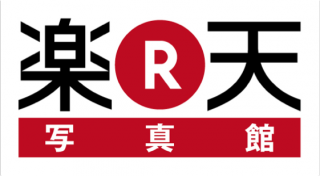March 24, 2014
Kobo owners Rakuten also run the world’s leading marketplace for whale meat
by Dustin Kurtz

Fun fact: the R stands for Really Don’t Care What Kind of Murdered Shit You Sell
Ah, elephant ivory and whale meat: two great tastes that taste great to goddamned monsters.
According to a report issued by the UK-based Environmental Investigation Agency along with the Humane Society International, the Japanese Rakuten Group is responsible for the world’s most egregious online marketplace for ivory and cetacean products. Rakuten is likely most familiar to MobyLives readers as the corporate owners of Kobo, the Toronto-based manufacturer of e-readers whose electronics are on sale in many indie bookstores across the U.S. and Canada. But as the EIA writes:
Its flagship e-commerce business Rakuten Ichiba was founded in 1997 in Japan. It is now Japan’s largest e-commerce marketplace, with more than 40,000 third-party merchants using it as a sales platform. It is estimated that about seven out of 10 Japanese people are members, and as of 2013 it had 87.4 million members. Sales through the Rakuten Ichiba website in Japan generated gross sales of US$9.8 billion dollars (¥1.4 trillion) in 2012. According to the Rakuten Group’s 2012 annual report, its total revenue in 2012 equalled more than US$4 billion dollars, with a net income of US$244 million dollars. Revenue from Rakuten Ichiba (which includes sales of whale meat and ivory) accounted for approximately 25 per cent of the Rakuten Group’s total revenue in 2012.
The environmental group reports that a search for the phrase “whale meat” on the site in June 2013 brought up 773 items, increased to 1200 when using variations on the phrase. Searches for ivory produced 28,000 ads for elephant ivory products. As of Sunday, similar searches, including for types of whale, would bring up many results in food categories, but the items themselves were blanked out and marked as unavailable for sale.
An international moratorium on whale hunting has been in place since 1986. Japan and Iceland both claim exemptions to that ban, ostensibly for scientific purposes. In it’s yearly whale hunts—largely subsidized by the Japanese government—Japanese fleets are allowed to murder 950 whales in Antarctic waters and another 500 in the North Pacific. This is in addition to the 16,655 dolphins and smaller cetaceans that were allowed to be killed in the 2013-2014 season in Japanese coastal waters.
While the claim of those nations to be engaging in some sort of science during their whale hunts is clearly specious, their efforts to preserve a longstanding cultural practice is laudable. Except, it should go without saying, the part of that cultural practice that involves ending thousands and thousands of intelligent lives every year.
Recently all of Japan’s major supermarkets have stopped stocking the meat from these scientific killings. Amazon and Google will not advertise whale products. That leaves Rakuten as an outstanding villain, leading marketplace for the flesh of incomparable intelligent creatures, some species of which may have individual names for each other. They’re facilitating the sale of the meat of people, by many definitions of that word.
To be clear: Rakuten Ichiba is a marketplace. They are not selling the ivory or minke whale steaks themselves. They are, however, profiting from their sale. “Rakuten’s ads are effectively as deadly as giving bullets to elephant poachers and harpoons to whalers,” said EIA’s president, Allan Thornton, as quoted by Justin McCurry in The Guardian. “[It] must act immediately to ban all ads selling elephant and whale products, or its global brand will be irrevocably tainted with the ongoing mass slaughter of these species.”
You might ask, why such concern for whales from a company and a blog named for Herman Melville? To which I might answer, if you believe that Melville reveled in the death of whales, you simply haven’t read enough Melville.
While Rakuten hasn’t responded to reporters to address the issue, they may yet decide to stop listing such items entirely without further pressure. But in the meantime, indie booksellers, a call or email to remind the folks at Kobo that you’re paying attention couldn’t hurt.
Dustin Kurtz is the marketing manager of Melville House, and a former bookseller.